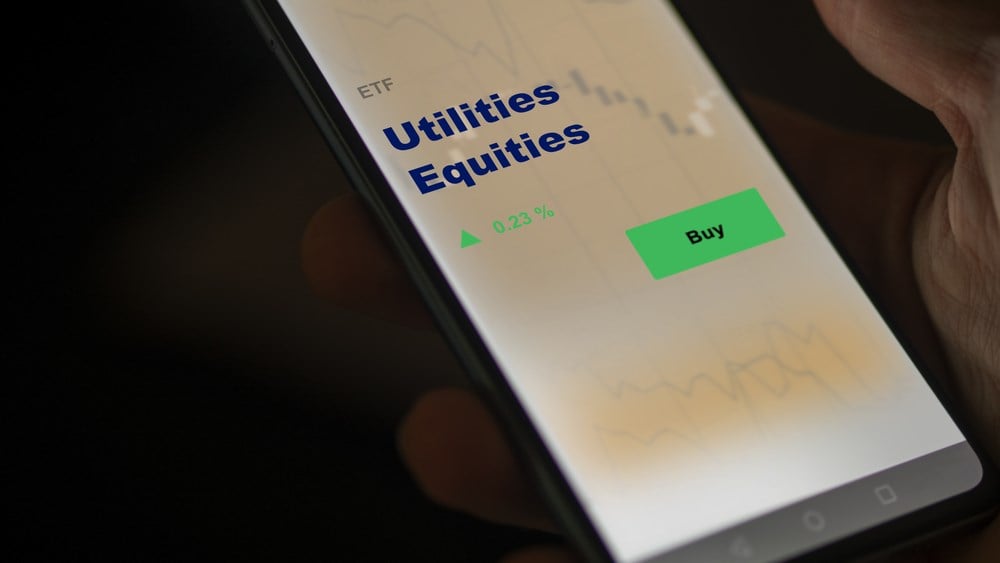
What's the hot defensive play right now?
Exactly what you'd think: utilities stocks, which are tried-and-true dividend payers, are trending higher. The Utilities Select Sector SPDR Fund (NYSEARCA: XLU) is up 4.72% in the past week. The sector is up 2.44% in the past month, outpacing the broader SPDR S&P 500 ETF Trust (NYSEARCA: SPY).
Utility stocks have earned a reputation as dependable dividend payers, attracting income-focused investors. This reliability is rooted in several key factors.
You don't ordinarily think of regulated industries as being good for shareholders, but that's the case with utilities. These companies run a gauntlet of oversight, establishing rules and pricing mechanisms, reducing the risk of revenue fluctuations. That also supports regular dividend payments.
For example, the NextEra Energy Inc. (NYSE: NEE) dividend yield is 3.12%, and the company has a 29-year track record of increasing its shareholder payout. The company's three-year earnings growth rate is 12%.
NextEra has earned a spot on the list of dividend aristocrats.
Why utilities are dependable in economic downturns
Utilities also fall into the category of companies that will continue to collect revenue regardless of the economy. Do you stop using electricity or water in a recession? Maybe you're more vigilant about turning off lights in empty rooms, but don't call your local utility and cancel your account.
In other words, utilities enjoy consistent demand regardless of economic conditions.
Long-term contracts and agreements with customers also contribute to revenue predictability.
For example, the Southern Company (NYSE: SO) has a three-year revenue growth rate of 15%. The Southern dividend yield is 3.99%, and the company increased its dividend in each of the past 23 years.
Another heavily weighted S&P component, Duke Energy Corp. (NYSE: DUK), has a spot on MarketBeat’s Dividend Achievers stock list, having increased its shareholder payout for 19 years.
A utility with a higher yield
If you're looking for a utility stock with a higher yield, consider Eversource Energy (NYSE: ES), which supplies electric power to customers in New Hampshire, Massachusetts and Connecticut. The S&P 500 component's yield is 4.97%.
Eversource Energy's dividend data show a 25-year history of boosting the shareholder payout.
The stock is down 21.27% in the past three months, with much of that decline due to higher operational and maintenance costs.
As a whole, the XLU ETF has a dividend yield of 3.4%, indicating that the sector as a whole has high payouts. The utilities sector has historically paid the highest dividends of all the S&P sectors.
One of only two sectors with a gain in 2022
That's a key reason utility stocks were one of only two sectors to show a gain in 2022. The extraordinary gain of the Technology Select Sector SPDR Fund (NYSEARCA: XLK) is well known, but the XLU’s return of 1.42% isn't common knowledge.
That was a small return, but in a broad-market downturn, like the market saw in 2022, investors could rely on the dividend stability of utilities.
Nobody ever accused utilities stocks of being exciting, but that's exactly their appeal.
Although the market has gone into rally mode in recent days, hoping that the Federal Reserve is done or nearly done raising rates, there's still plenty of uncertainty, as the housing market is rearing its head as a potential problem.
Utilities stocks are well-suited for conservative investors seeking stability and consistent income. In other words, retirees might want to consider holding utilities as part of a diversified portfolio.
Optional dividend capture strategy
In addition, if you're more interested in an approach that combines elements of trading and longer-term investing, utilities could be implemented into a dividend capture strategy.
If the market does indeed go into a downturn and growth stocks falter, utilities may prove their worth, as frequently happens in poor market conditions.
Part of utilities' traditional role as defensive stocks includes acting as a hedge against more volatile sectors during economic downturns. Even investors who aren't comfortable holding more volatile growth names in a market downturn frequently find the income generated by the utility sector helps mitigate losses elsewhere.





